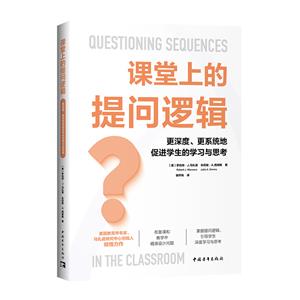
作者:[匈]佐尓坦·德尔涅伊,吕国燕
页数:156
出版社:外语教学与研究出版社有限责任公司
出版日期:2022
ISBN:9787521339345
电子书格式:pdf/epub/txt
内容简介
本书作者既是动机研究方面的理论专家,也是主张把理论知识切实应用于教学实践的教学专家。本书集理论概述、案例呈现和策略阐释于一体,为一线教师提供了可操作的教学建议,可以作为外语教师开展教学活动及提升自身能力、实现自我发展的重要参考书。本书总结了外语课堂中激发学习者学习动机的35个教学策略,帮助教师从不断提升学习者动机的角度设计和实施教学活动。有些策略值得深入思考,有些策略 适合在课堂教学中进行尝试。当然,读者也可以通过阅读这些策略及其相关论述,形成自己的观点。
作者简介
佐尔坦·德尔涅伊(Zoltán Drnyei),英国诺丁汉大学英语学院心理语言学教授、 语言学家,主要从事二语习得研究,研究领域为二语学习的动机。德尔涅伊教授于匈牙利布达佩斯的罗兰大学取得心理语言学博士学位,并曾在该大学的英语及美国研究学院从事教学和研究。他于1998年移居英国,先在泰晤士河谷大学任教,2000年赴诺丁汉大学任教至今。
本书特色
《语言课堂上的动机策略》是一本写给外语教师的教学指南,也为二语学习动机研究者和对此感兴趣的读者提供了参考。书中提出的多样化动机教学建议和策略能够帮助教师反思自己的教学经验,新教师和资深教师都能从书中获取有益的教学灵感,从而不断提升自身的教学感染力,形成自己独特的教学风格。《语言课堂上的动机策略》具有鲜明的个性特色和突出的实用价值,并具有开创性、实践性、反思性、易读性四个特点。《语言课堂上的动机策略》是“剑桥英语教师丛书”中的一本。
目录
导读
Acknowledgements
Introduction: What this book is about and how it can be used
Is there such a thing as ‘motivation’?
About the content of this book
How to use this book
1 Background knowledge
1.1 Different approaches to understanding motivation
1.2 Motivating people
1.3 Motivational strategies
2 Creating the basic motivational conditions
2.1 Appropriate teacher behaviours
2.2 A pleasant and supportive atmosphere in the classroom
2.3 A cohesive learner group with appropriate group norms
3 Generating initial motivation
3.1 Enhancing the learners’ language-related values and attitudes
3.2 Increasing the learners’expectancy of success
3.3 Increasing the learners’goal-orientedness
3.4 Making the teaching materials relevant for the learners
3.5 Creating realistic learner beliefs
4 Maintaining and protecting motivation
4.1 Making learning stimulating and enjoyable
4.2 Presenting tasks in a motivating way
4.3 Setting specific learner goals
4.4 Protecting the learners’ self-esteem and increasing their self-confidence
4.5 Allowing learners to maintain a positive social image
4.6 Promoting cooperation among the learners
4.7 Creating learner autonomy
4.8 Promoting self-motivating learner strategies
5 Rounding off the learning experience: Encouraging positive self-evaluation
5.1 Promoting motivational attributions
5.2 Providing motivational feedback
5.3 Increasing learner satisfaction
5.4 Offering rewards and grades in a motivating manner
Conclusion: Towards a motivation-sensitive teaching practice
The ‘good enough motivator’
A stepwise approach
Please consider sharing your experiences
References
Index
Acknowledgements
Introduction: What this book is about and how it can be used
Is there such a thing as ‘motivation’?
About the content of this book
How to use this book
1 Background knowledge
1.1 Different approaches to understanding motivation
1.2 Motivating people
1.3 Motivational strategies
2 Creating the basic motivational conditions
2.1 Appropriate teacher behaviours
2.2 A pleasant and supportive atmosphere in the classroom
2.3 A cohesive learner group with appropriate group norms
3 Generating initial motivation
3.1 Enhancing the learners’ language-related values and attitudes
3.2 Increasing the learners’expectancy of success
3.3 Increasing the learners’goal-orientedness
3.4 Making the teaching materials relevant for the learners
3.5 Creating realistic learner beliefs
4 Maintaining and protecting motivation
4.1 Making learning stimulating and enjoyable
4.2 Presenting tasks in a motivating way
4.3 Setting specific learner goals
4.4 Protecting the learners’ self-esteem and increasing their self-confidence
4.5 Allowing learners to maintain a positive social image
4.6 Promoting cooperation among the learners
4.7 Creating learner autonomy
4.8 Promoting self-motivating learner strategies
5 Rounding off the learning experience: Encouraging positive self-evaluation
5.1 Promoting motivational attributions
5.2 Providing motivational feedback
5.3 Increasing learner satisfaction
5.4 Offering rewards and grades in a motivating manner
Conclusion: Towards a motivation-sensitive teaching practice
The ‘good enough motivator’
A stepwise approach
Please consider sharing your experiences
References
Index















